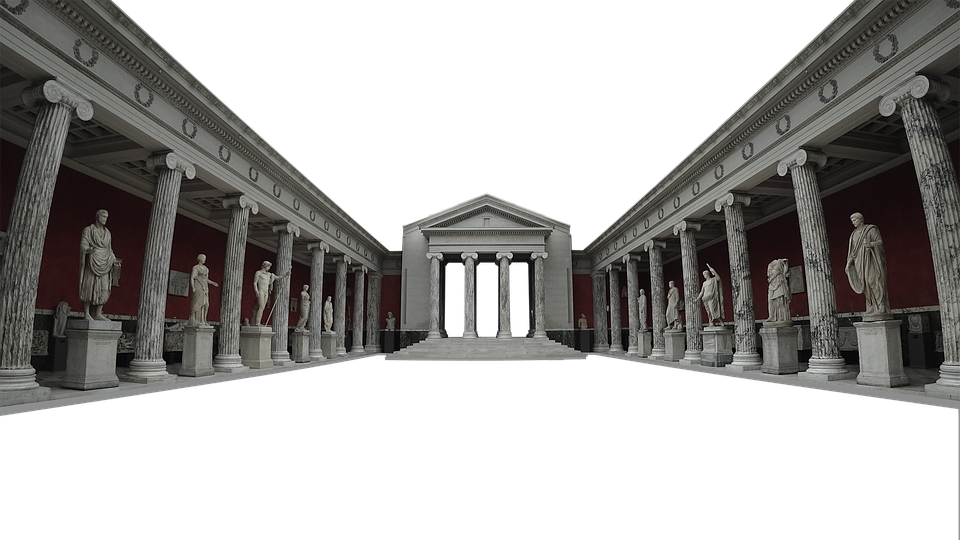
Religion in Ancient Rome: Overview
Ancient Roman Gods
The religion of ancient Rome was a deeply ingrained part of daily life for its citizens. The Roman pantheon was vast and included numerous gods and goddesses, each representing various aspects of life and the natural world. Some of the most important gods in Roman religion included Jupiter, the king of the gods; Juno, his wife and goddess of marriage and childbirth; Neptune, the god of the sea; Mars, the god of war; and Venus, the goddess of love and beauty.
Temples and Religious Practices
Temples dedicated to these gods were a central feature of Roman cities and towns. These temples served as places of worship, where citizens could come to offer sacrifices and prayers to the gods. The most important of these temples was the Temple of Jupiter Optimus Maximus, located on the Capitoline Hill in Rome. This temple was dedicated to Jupiter, the supreme god of the Roman pantheon, and was the site of many important religious ceremonies and sacrifices.
In addition to temples, the Romans also practiced various religious rituals and festivals throughout the year. These rituals were intended to honor the gods and ensure their favor for the city and its citizens. Some of the most important festivals in ancient Rome included the Lupercalia, a fertility festival held in honor of the god Lupercus; the Saturnalia, a winter solstice festival dedicated to the god Saturn; and the Vestalia, a festival honoring the goddess Vesta, protector of the home and hearth.
Beliefs and Practices
The ancient Romans believed that the gods played a central role in their daily lives, influencing everything from the weather and harvests to the outcomes of battles and political decisions. As a result, they were deeply religious and superstitious people, always seeking ways to appease the gods and ensure their favor.
One of the most important aspects of Roman religious practice was the offering of sacrifices to the gods. These sacrifices could take the form of animals, food, or other offerings, and were typically accompanied by prayers and invocations to the gods. The Romans believed that by offering these sacrifices, they could ensure the gods’ favor and protection.
Another important aspect of Roman religion was the concept of augury, or the interpretation of signs and omens from the gods. The Romans believed that by studying the flight of birds, the behavior of animals, and other natural phenomena, they could receive messages from the gods about future events. Augury played a central role in Roman religious practices and was consulted before important decisions and events.
Overall, religion was an integral part of ancient Roman society, shaping everything from politics and warfare to daily life and social customs. The Romans believed that the gods were an omnipresent force in the world, influencing all aspects of their lives and guiding their destinies.
In conclusion, religion in ancient Rome was a complex and deeply ingrained part of daily life for its citizens. The Roman pantheon was vast and included numerous gods and goddesses, each representing various aspects of life and the natural world. Temples dedicated to these gods were a central feature of Roman cities and towns, where citizens could offer sacrifices and prayers to ensure the gods’ favor. Beliefs and practices such as sacrifices, augury, and religious festivals helped to shape Roman society and culture, making religion an integral part of their civilization.
Overall, the religion of ancient Rome was a central aspect of their cultural identity, shaping everything from their political decisions to their daily rituals and beliefs. The gods, temples, and beliefs of ancient Rome continue to fascinate scholars and historians to this day, providing insight into the religious practices and beliefs of one of history’s most influential civilizations.